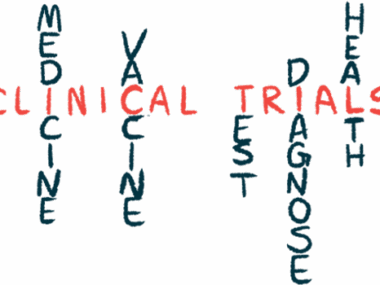FDA OKs clinical testing of BE-101 as potential hemophilia B treatment
Phase 1/2 trial to test safety, early efficacy of B-cell therapy in adults
Written by |
The U.S. Food and Drug Administration (FDA) has cleared clinical testing in adults of BE-101, a B-cell treatment candidate for hemophilia B being developed by Be Biopharma.
The Phase 1/2 trial, called BeCoMe-9, will be a first-in-human study designed to assess the safety and preliminary efficacy of BE-101 in adults with moderately severe to severe hemophilia B. The company said it expects to start dosing patients in the second half of the year.
“The [FDA] clearance is a major milestone in our journey to offer a new, transformative standard of care for people with hemophilia B,” Joanne Smith-Farrell, PhD, Be Biopharma’s CEO, said in a company press release.
Steven Pipe, MD, from the University of Michigan, said the experimental therapy has the potential to be disease-modifying.
“If proven safe and effective in adults, the ability to treat children and transform the phenotype [disease manifestations] as early as possible would be a game changer,” said Pipe, medical director of university’s pediatric hemophilia and coagulation disorders program.
BE-101 has ‘potential’ to be disease-modifying hemophilia B treatment
Hemophilia is mainly caused by mutations that impair the production or activity of certain clotting factors, or proteins that are needed for blood clotting. People with the disorder are highly susceptible to bleeding episodes because the cascade of clotting reactions required to stop bleeding is not functioning properly.
Hemophilia B, the second most common type of hemophilia, is caused by mutations in the F9 gene, which encodes factor IX, known as FIX. Factor replacement therapy, which involves supplying the missing clotting factor to patients, is considered the gold-standard treatment for hemophilia. However, these treatments require patients to receive frequent infusions to maintain clotting factor levels within a therapeutic range to prevent bleeds.
According to Smith-Farrell, “adults and children with hemophilia B have long sought a single dose factor IX replacement therapy with extreme durability while retaining the dosing flexibility of the current standard of care.” That’s what Be Biopharma is seeking to provide.
BE-101 is an autologous first-in-class B-cell medicine. Being an autologous medicine, it relies on B-cells that are collected from the patient who will then receive treatment.
It works by inserting the human gene encoding factor IX into primary human B-cells, with the aim of sustainably increasing the production and activity of FIX for the treatment of hemophilia B.
Once collected, patient B-cells are engineered in the lab so that a functional F9 gene is inserted into their genome — the entire set of genes found within a cell.
Then, the modified B-cells are expanded and differentiated into plasma cells, which are known to be able to produce thousands of antibodies per second, before being infused back to the patient. At that point, plasma cells are expected to migrate to the bone marrow to produce and release FIX at constant levels.
BE-101 has the potential to be disease-modifying by providing long-lasting FIX protection using the patient’s own B cells while providing the option to be [dose-adjusted] and redosable as necessary.
In preclinical studies involving immunodeficient mice, a single dose of BE-101 was able to drive sustained therapeutic FIX activity. The data demonstrated the distribution of FIX-producing cells to the bone marrow, where they survived and expanded over time. The findings also demonstrated that repeated treatment resulted in a predictable increase in FIX levels in the bloodstream.
Moreover, no safety concerns were identified. Similarly, no abnormal clinical observations or mortality were observed in mice receiving treatment.
“BE-101 has the potential to be disease modifying by providing long-lasting FIX protection using the patient’s own B cells while providing the option to be [dose-adjusted] and redosable as necessary,” Pipe said.


